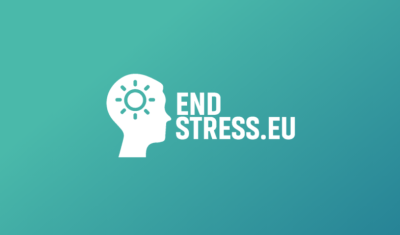Trade unions are launching a campaign for an EU law to tackle work-related stress amid a mental health crisis worsened by the lockdown.
Work-related stress had already become an epidemic before confinement, accounting for more than half of all working days lost in the EU. New Eurostat data shows one in three workers are always or often working under time pressure, a major cause of stress.
But since the lockdown, the United Nations says stress levels in Europe have “risen substantially.” People working from home are twice as likely to work over 48 hours and more likely to suffer repeatedly interrupted sleep.
On the UN’s World Mental Health Day, unions are launching the EndStress.EU campaign to secure an EU directive to tackle the growing problem.
Why it’s time to tackle work-related stress in Europe:
- 51% of EU workers say stress is common in their workplace
- The cost of depression due to work is estimated at 617 billion euros per year
- A quarter of workers say they feel emotionally drained by work during lockdown
The directive is needed because the EU’s own research shows that 89% of employers say that the main reason they manage occupational health and safety is because of legislations. But only a handful of members states have legislation on work-related stress and just a third of workplaces have an action plan to prevent work-related stress.
The campaign is led by the ETUC and Eurocadres, a trade union representing professionals and managers, and is supported by Mental Health Europe as well as over 20 national trade unions. MEPs from the S&D and Green/EFA groups in the European Parliament are also taking part in the campaign launch.
Eurocadres President Martin Jefflen said:
“4 in 5 managers express concern about stress at work. Managers, our members, need better tools and good legislation can help in creating work organisations which support mental health at work in the EU.”
“We need a separate directive to address the stress at work epidemic, like there are for many physical risks. Health and safety laws can be incredibly efficient. But for psychosocial risks the current EU legal framework from 1989 is not good enough.”
“COVID-19 is still among us and with companies trying to restart activities a directive on psychosocial risks, violence and harassment and work organisation would really have helped. Don’t make mental health the next health at work crisis.”
ETUC Deputy General Secretary Per Hilmersson said:
“Work-related stress had already reached epidemic levels before the lockdown but working from home has created new pressures that have negatively impacted on peoples’ mental health.
“It is more urgent than ever to tackle Europe’s crisis in work-related stress and the EU’s own research shows employers only take action as a result of legislation.
“It’s time the European Commission showed that they take mental health as seriously as physical health by bringing forward a directive to tackle the work-related stress epidemic.”
Notes:
Sources for all statistics without individual links can be found at EndStress.EU.
Register here for the EndStress.EU campaign launch event on October 15

